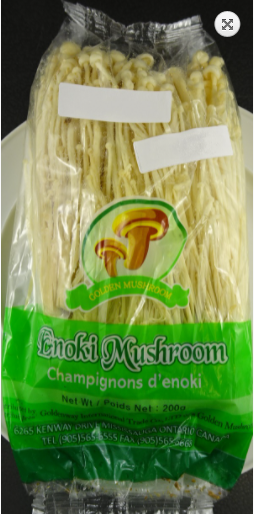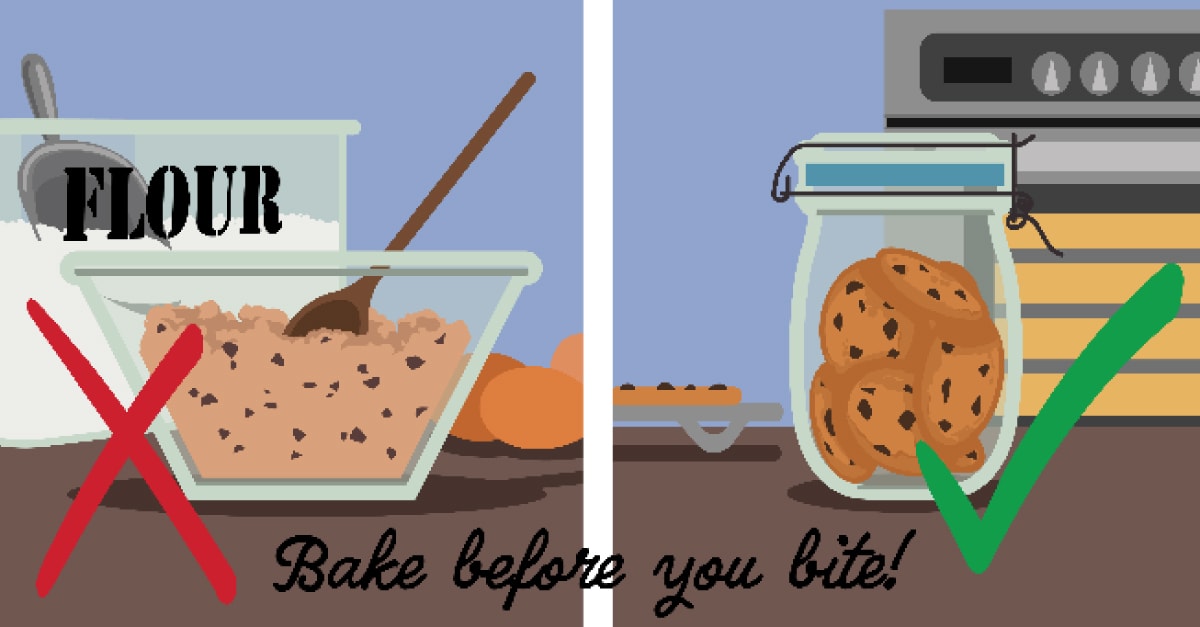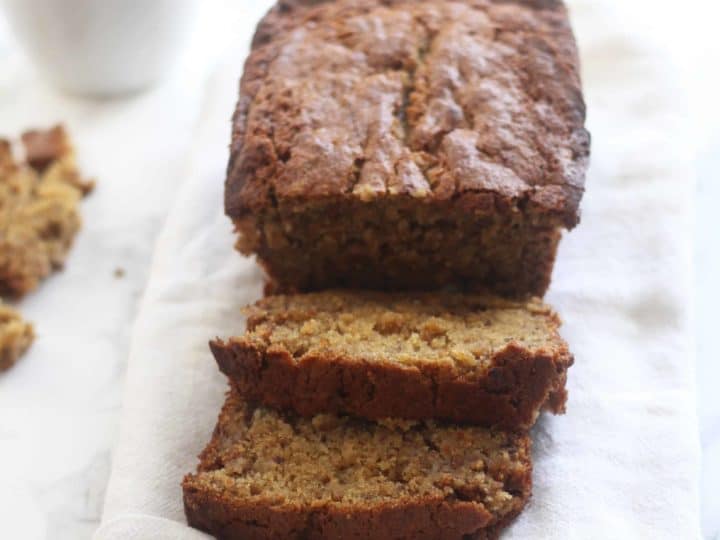The Canadian Food Inspection Agency (“CFIA”) reported that Goldenway International Trade Co. (Mississauga, Ontario) recalled Golden Mushroom brand Enoki Mushroom from the Canadian marketplace due to possible Listeria monocytogenes contamination. Golden Mushroom Enoki Mushrooms, a fresh vegetable product marketed, sold, and delivered in 200-gram clear plastic bags; affected batch/lots: all products sold up to and including May 7, 2021, with a UPC of 8 809201 000039. These food products may be close to or past their use-by dates; they may be in your freezers or storage chillers. The recalled products have been marketed, distributed, and sold in the Canadian provinces of Ontario and Quebec. @ https://healthycanadians.gc.ca/recall-alert-rappel-avis/inspection/2021/75561r-eng.php
ruth
Goldenway International Trade Co., Ltd. is recalling Golden Mushroom brand Enoki Mushroom from the marketplace due to possible Listeria monocytogenes contamination.
ruth
An article in Current Opinion in Food Science (Volume 39, June 2021, Pages 83-92 by Zwietering, Garre, Wiedmann, and Buchanan) discusses why all foods have an inherent residual risk. As risk-based approaches are increasingly recognized and used to manage food safety hazards, their implementation requires recognition and appreciation of residual risk. Because foodborne pathogens are endemic to most food systems, a situation of zero risk in food production is unattainable with the technology available nowadays, and a residual risk always remains. Microbial Risk Assessment (MRA) makes a clear distinction between hazard and risk. Nowadays, the MRA methodology is one of the tools used by food industries and regulatory bodies to estimate the risk associated with different food products. Assessment of residual risks (e.g., for produce) will also facilitate future risk-benefit analyses (e.g., population-level foodborne disease risk versus nutritional benefits associated with affordable produce) that will help define acceptable residual risk. Testing is a verification method but not a control method.@ https://www.sciencedirect.com/science/article/pii/S2214799320301739
As risk-based approaches are increasingly recognized and used to manage food safety hazards, their implementation requires a recognition and appreciatâ¦
MMWR published a report on Multistate Outbreak of Escherichia coli O26 Infections Linked to Raw Flour (MMWR Morb Mortal Wkly Rep 2021;70:600–601). On February 20, 2019, PulseNet, identified six Shiga toxin-producing Escherichia coli (STEC) O26:H11 infections with the same PFGE pattern combination. The PFGE pattern matched that of infections from a July 2018 outbreak (ground beef). The CDC initiated an investigation to identify the outbreak source and implement prevention measures. Twenty-one cases were reported from nine states. Three patients were hospitalized, and none died. On May 21, 2019, the Rhode Island Department of Health testing identified STEC O26 from an intact bag of all-purpose flour in the same grocery store brand reported by other patients. PulseNet confirmed that the STEC O26 isolated from the flour was highly related to clinical isolates. Product distribution records collected by the FDA indicated that the store brand flour purchased by six patients in three states was produced in a single milling facility in Buffalo, New York. As a result, the store chain recalled all lots of products from its retail locations in 11 states. The milling company also recalled all lots of the product and several other lots of flour produced in that facility. Flour is increasingly recognized as a cause of STEC outbreaks. Raw flour is not a ready-to-eat product, and this outbreak highlights the continuing risk for illness associated with the consumption of flour and raw dough or batter. @ http://dx.doi.org/10.15585/mmwr.mm7016a4
This report describes an outbreak of Shiga toxin-producing E. Coli…
ruth
The Canadian Food Inspection Agency (“CFIA”) reports that Give and Go Prepared Foods Corp. (Toronto, Ontario) and a subsidiary of Mondelez International, recalled batch/lots of Original Two-Bite branded Chocolate Chip Banana Bread products from the Canadian marketplace due to suspected spoilage and possible Mold contamination. The product was sold and delivered in 250 gram packages with a batch/lot of 21081. These Chocolate Chip Banana Bread products were marketed, distributed, and sold in Alberta, Manitoba, and Saskatchewan. However, it is always possible these food products had wider distribution within the country. @ https://healthycanadians.gc.ca/recall-alert-rappel-avis/inspection/2021/75505r-eng.php
Information for Notification: Original Two-Bite brand Chocolate Chip Banana Bread recalled due to mould




